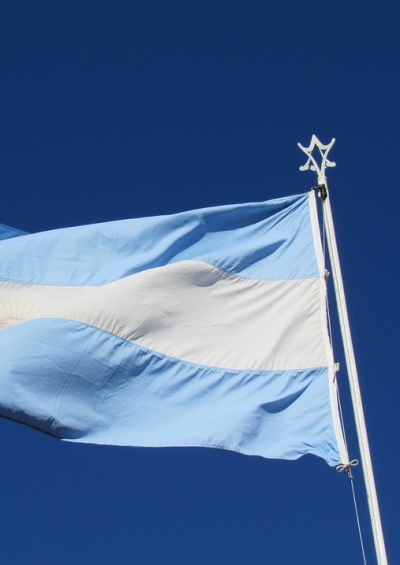Argentina’s Debt: How to Buy Time in the Pandemic
As the country faces yet another debt crisis, what is a constructive way forward for Argentina and its creditors?
May 1, 2020

On April 15, the finance ministers of the Group of 20 offered to postpone for the remainder of this year all the interest and principal payments that the low-income developing country governments owe to G20 member governments.
Debt-relief for distressed middle-income countries?
Nobody proposed any help for Argentina or any other debt-distressed pandemic-riddled middle-income country.
And yet, it is possible to think about something that might help ease the strain on Argentina and others, buying time to devise more permanent debt-crisis solutions.
Argentina insolvent
Meanwhile, the International Monetary Fund says Argentina is virtually insolvent. And while Argentina has been in discussions with the IMF on how to dig itself out of its economic difficulties, it is for the time being on its own in dealing with its creditors.
Although Argentina owes almost $44 billion to the IMF itself, the current challenge for the government is to pay the interest and principal it owes its bondholders in 2020, especially on the bonds issued in U.S. dollars or other foreign currencies. These bonds require that payments be made in “hard” currency.
Few ways to earn hard currencies
In normal times, these payments can be made from a surplus in the balance of trade or net foreign investment inflows or from reserves. In 2020, the options are, to say the least, limited.
International commodity prices and world trade volumes have tanked. Investment has collapsed and investors already shipped vast amounts of funds out of the country.
Argentina’s currency reserves have declined by half from July 2019 to March 2020. Should the remaining reserves be used now to import essential medical and other high-priority goods or pay foreign creditors?
While Argentina has taken some steps to reduce its foreign debt servicing in 2020, Martín Guzmán, the country’s Minister of Economy, stated “Today we cannot pay the debt, we have the will to do it, but we do not have the capacity to do it.”
Another battle with Argentina’s creditors
That is why Argentina proposed a debt restructuring plan to its creditors that would postpone all interest payments until 2023 and all principal repayments until 2026, with reductions in the overall amounts to be paid.
Creditors quickly rejected the proposal. If no agreement is reached by the deadline and if the interest payment is not made by its deadline, bondholders — or at least some of them — will likely seek legal redress in the New York courts.
These are the same courts where Argentina lost a protracted battle that the U.S. Supreme Court ultimately settled in June 2014.
The Court sided with the recalcitrant creditors who had been unwilling to accept the write down of Argentina’s debt after its 2001 default (Guzmán wrote a trenchant review of the full experience, which presumably informs his approach today).
Is there a way out?
There is an alternative to a nasty court fight over money for creditors while Argentine people sicken and die of COVID 19 and the economy crashes.
In fact, the Group of 20 suggested what should be done, albeit referring to the obligations of the low-income countries to their foreign bondholders. It recommended payments be postponed to private creditors on the same basis as the bilateral credits.
In other words, Argentina’s bondholders could agree among themselves to offer to postpone all Argentine debt servicing falling due until 2021.
They could also insist, as a quid pro quo, that the funds be used instead for fighting COVID 19 and to support the poorest and those most harmed by the crisis.
The crucial role of civil society
Surely Argentine civil society and the press would monitor that this happens. Is it doable?
There is a mix of Argentine bond issues which have different voting criteria for making a decision on changing the financial terms of the bonds (“collective action clauses”).
But it seems possible that a sufficient majority could reach the decision to delay payments so that it would become effective for all holders of the covered bond issues.
Moral pressures matter in finance
For non-cooperative holders of bonds not covered by such agreements, there might be strong moral pressure to go along rather than go to court.
There would presumably also be quite negative public image consequences that could deter at least some potential investors from placing money with the non-cooperating firm in the future.
Moreover, the deferment would last only until the end of the year (but in principle should be extended if the crisis warranted).
There is a financial as well as a moral case to be made for creditor postponement in Argentina’s case. The global economic and public health situation is today extremely uncertain.
By late 2020, it may be hoped that there is more clarity on the global and Argentine recovery path, which would inform how much Argentina might be able to pay its bondholders over the coming years.
Conclusion
In short, a gesture from the bondholders toward Argentina seems warranted in this year of pandemic.
Most creditors can understand that there are situations in which ethical principles ought to trump financial obligations. Argentina faces one such today. Why try to squeeze blood from a stone? You don’t usually get much blood.
Takeaways
As world trade volumes have tanked, investment has collapsed and investors have shipped vast amounts of funds out of Argentina.
Should Argentina’s remaining currency reserves be used now to import essential medical and other high-priority goods or pay foreign creditors?
Argentina’s bondholders could agree to postpone all debt servicing until 2021. In return they could insist that the funds be used to fight COVID 19.
There is a financial and a moral case for creditor postponement for Argentina. The global economic and public health situation is today extremely uncertain.

